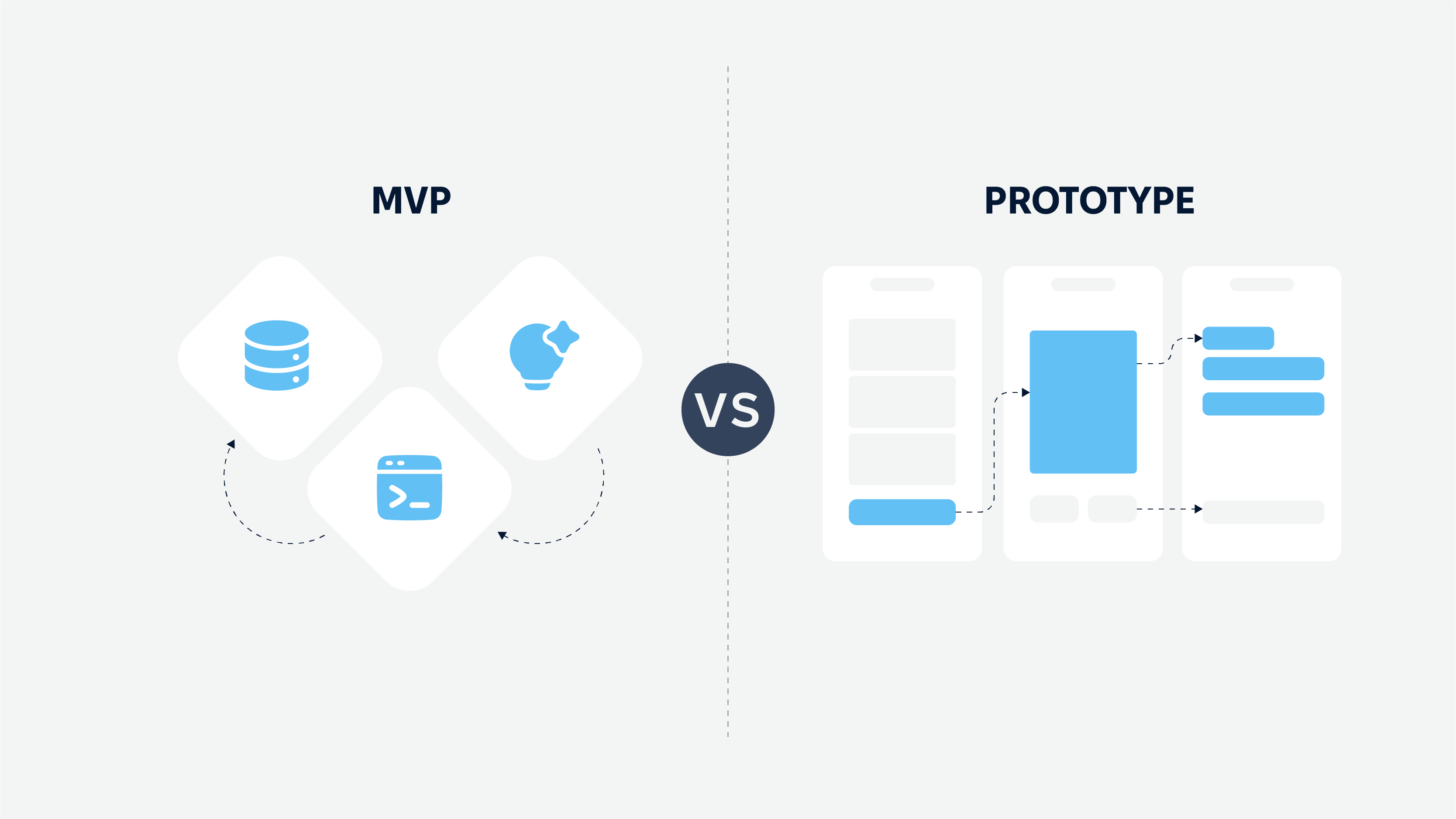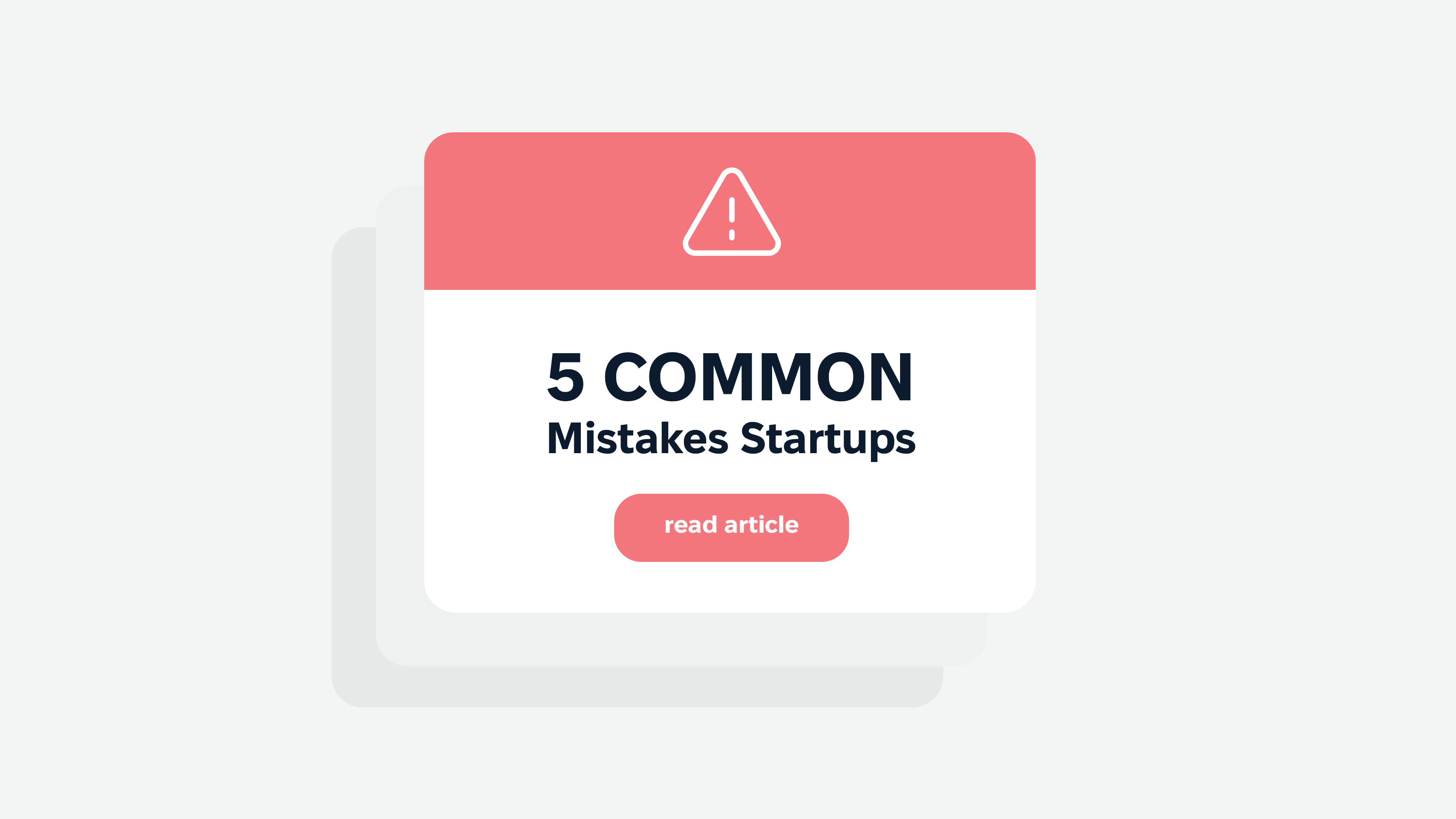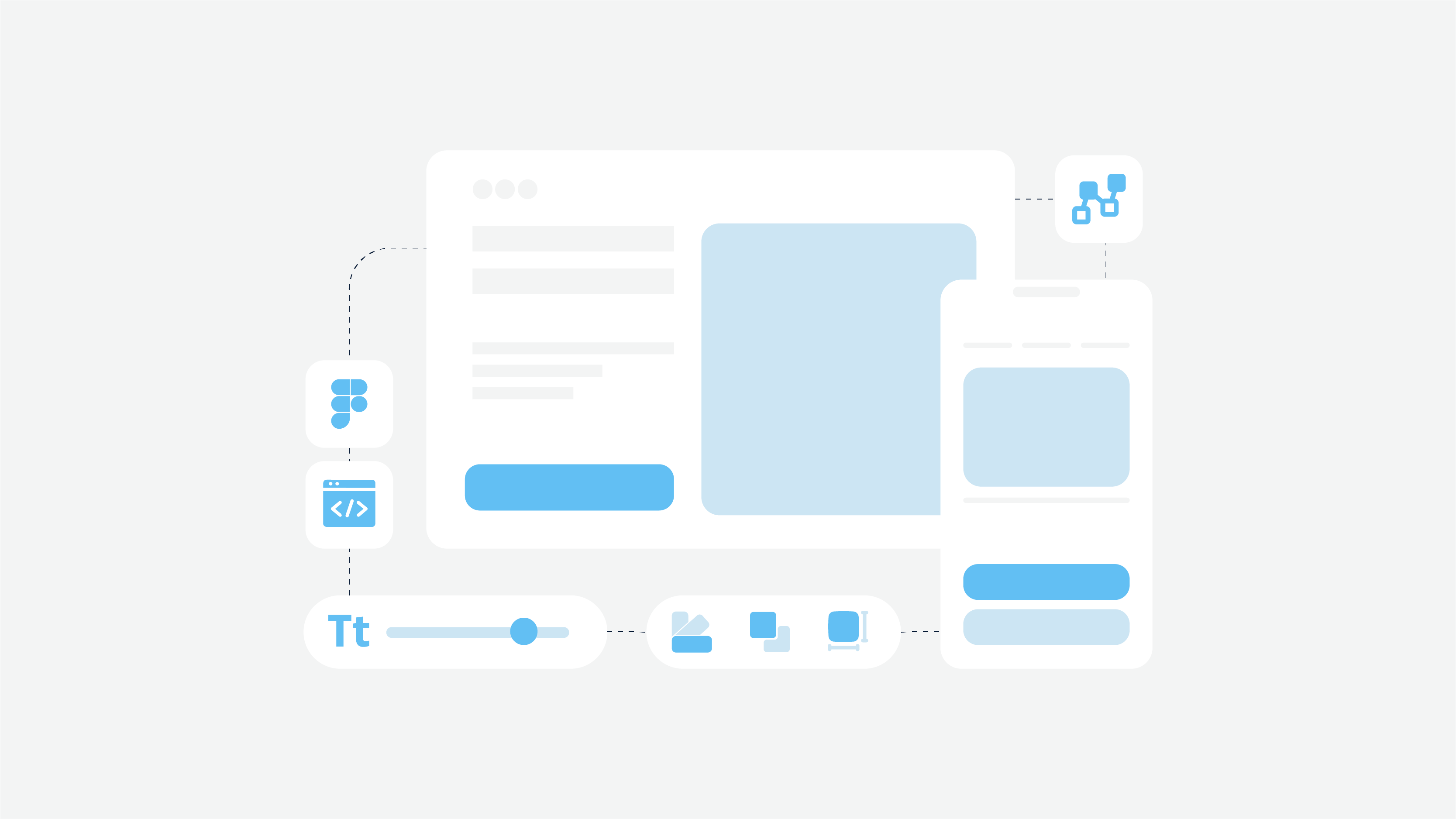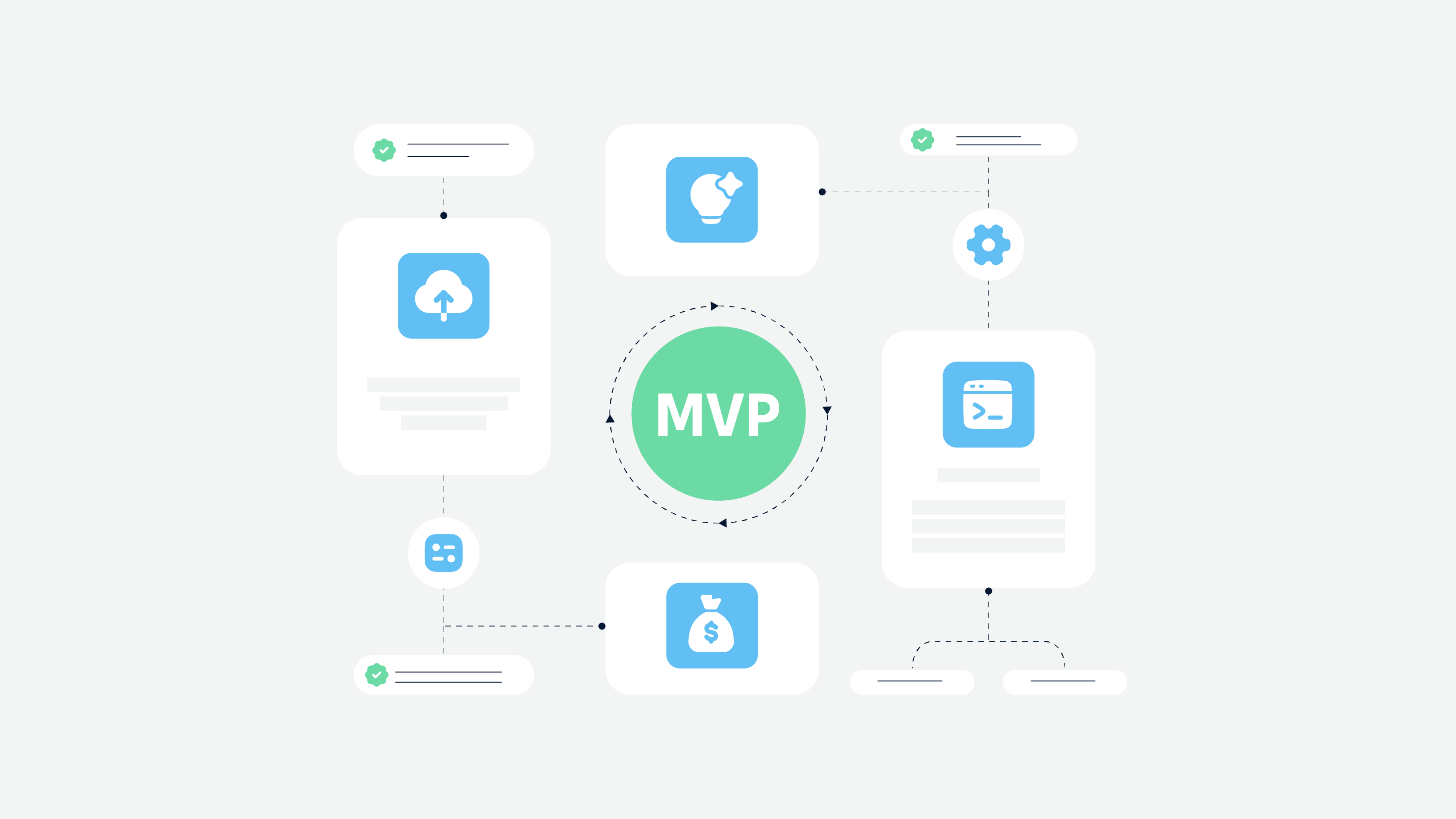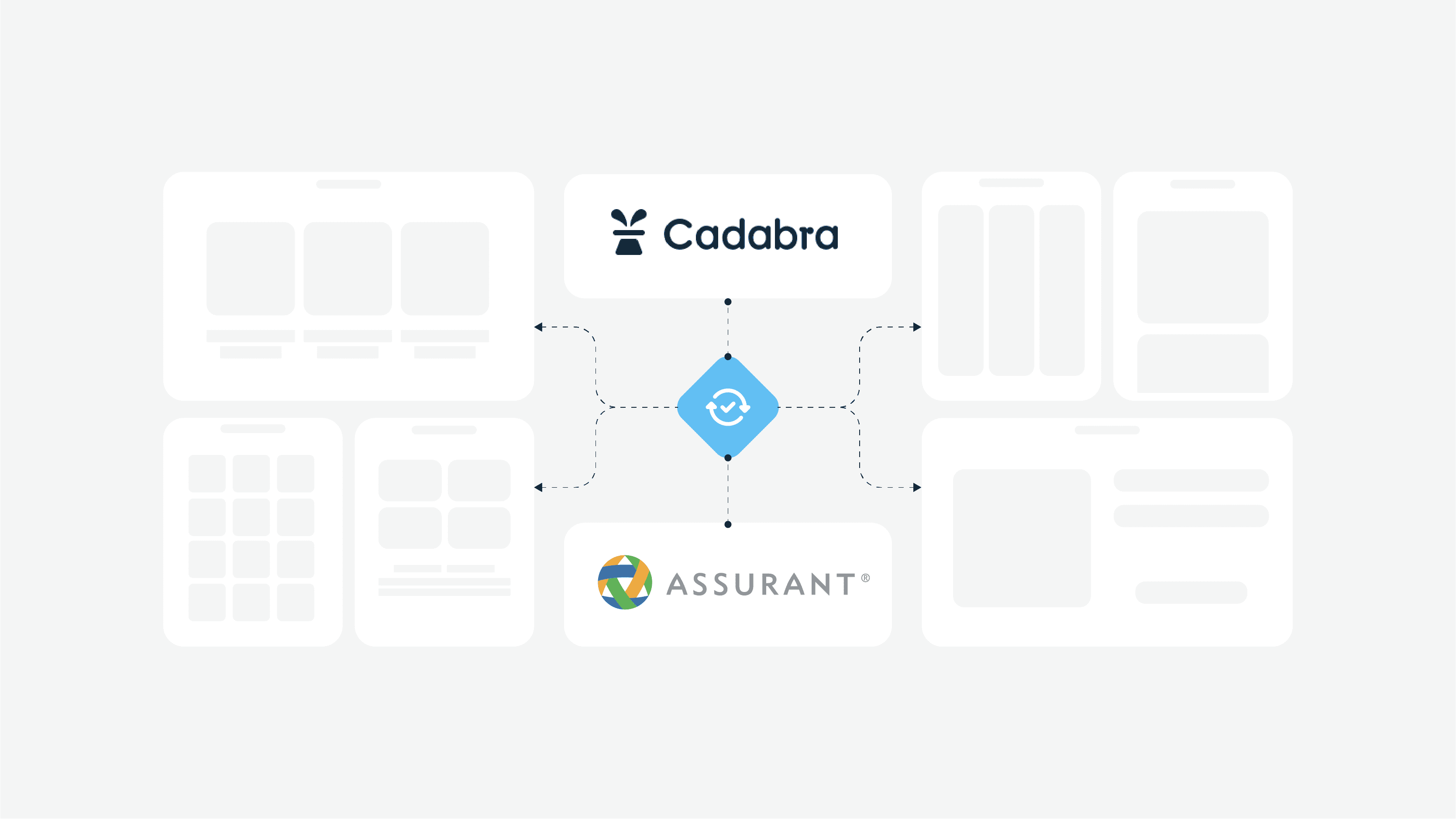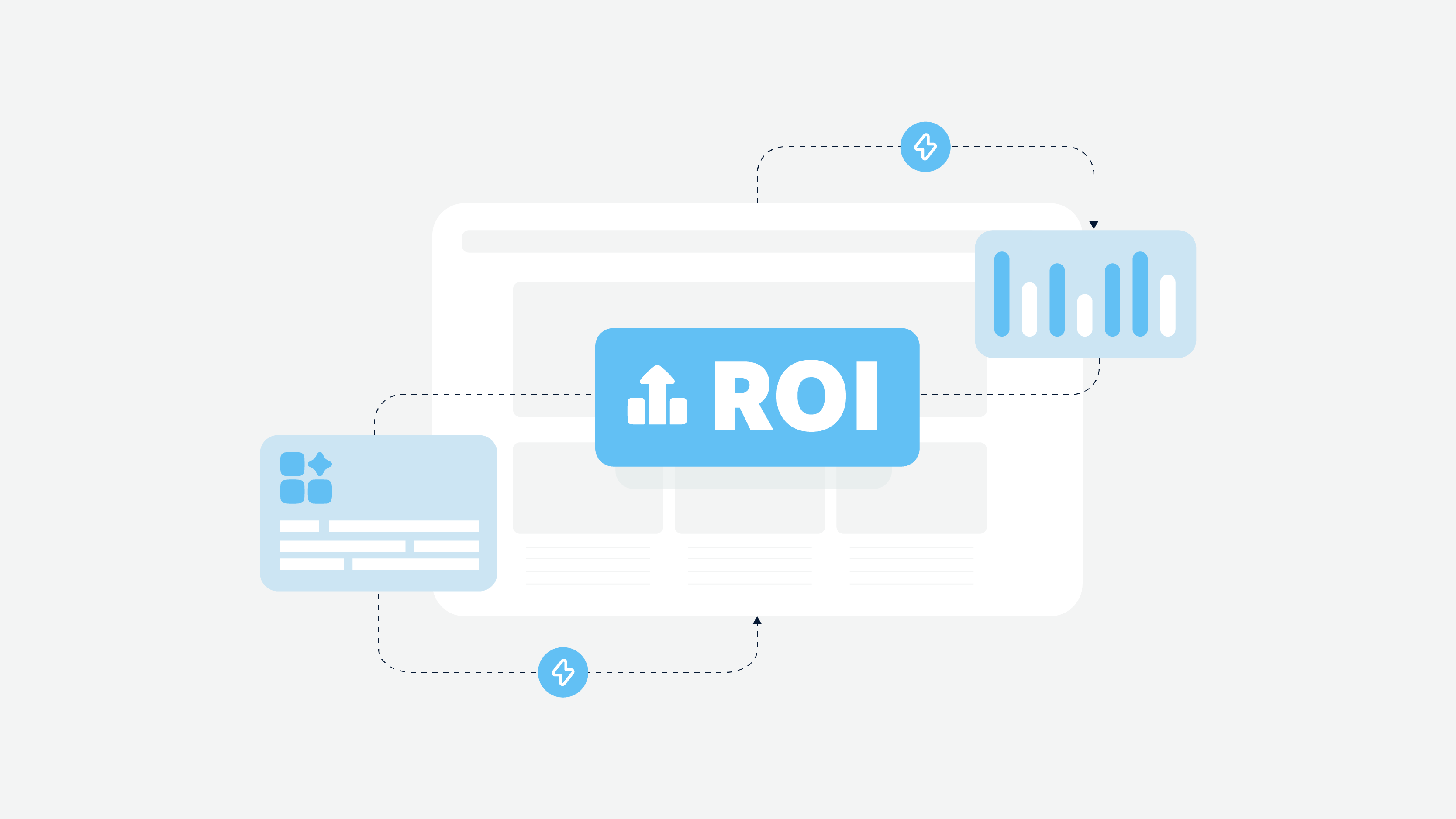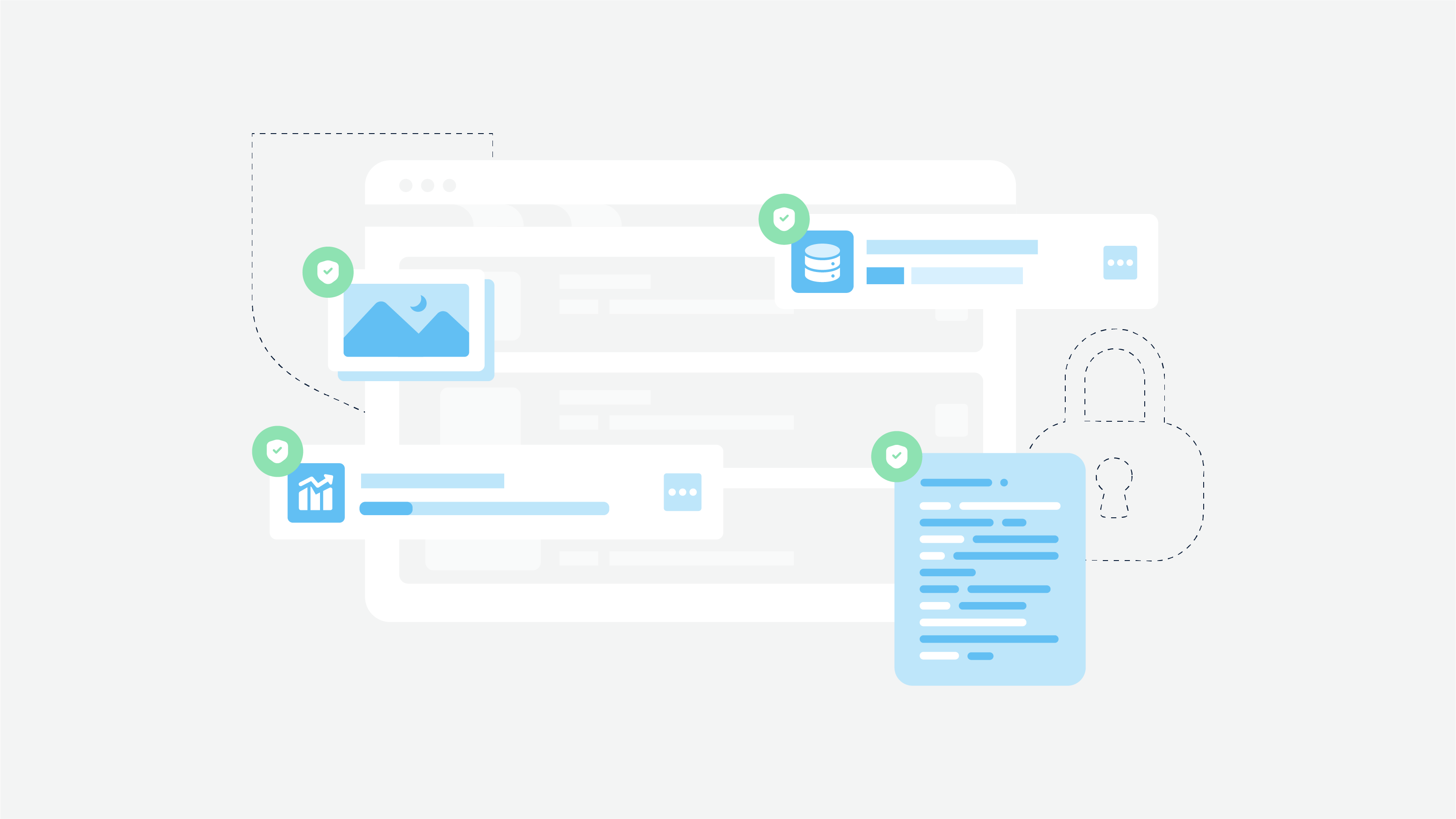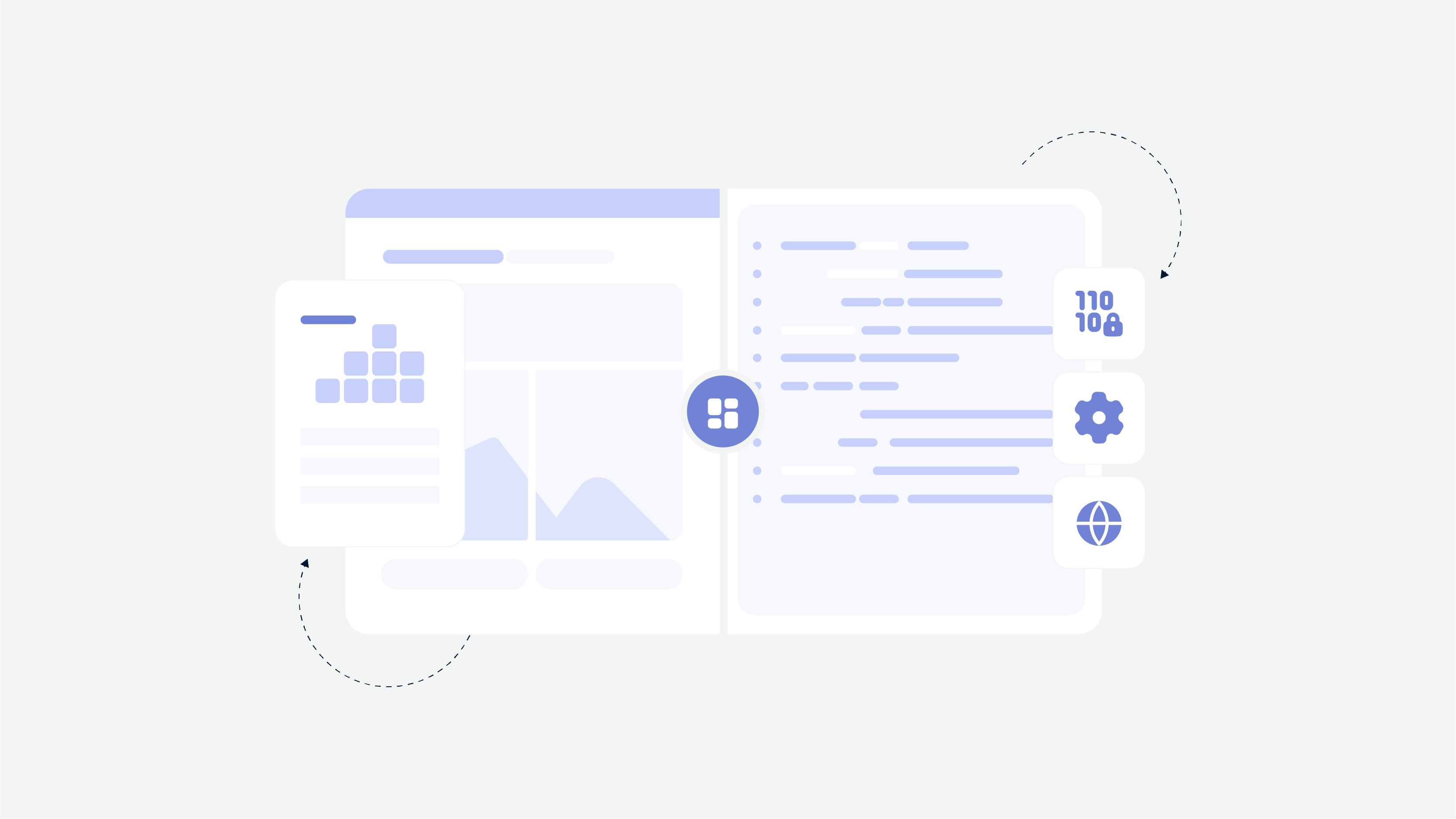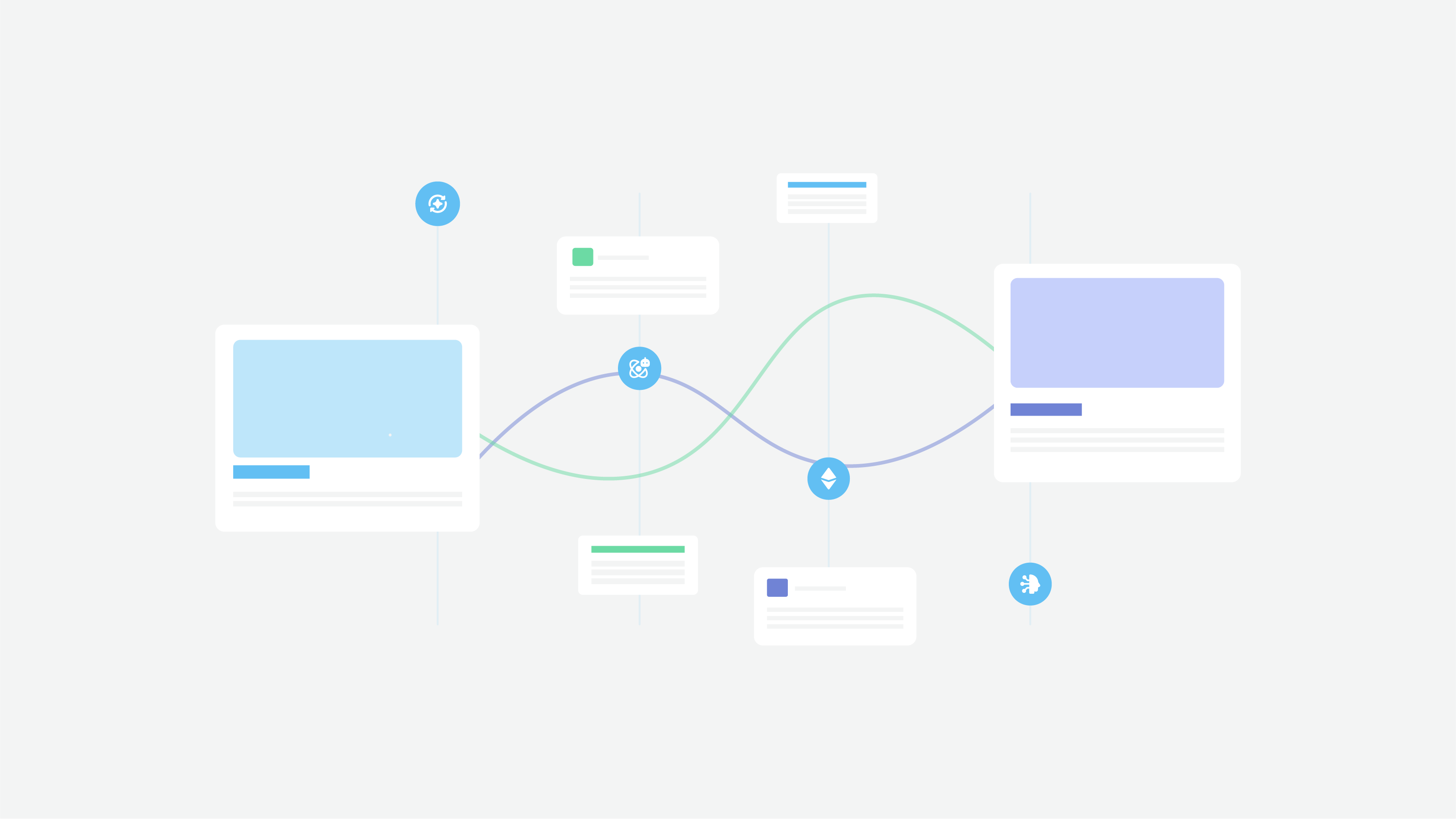It’s not enough to build, choose and design a website because it’s what all businesses need. It is important to build a website design regarding its type. A well-designed website is used to accomplish many different marketing strategies to help businesses grow. You may wonder how to consider which type of website is yours? We are ready to give the most detailed response, you’ve ever read.
A Simple Question: “What Is a Website?”
The website is one or more logically connected web pages, where various types of data and content (video/text/image) are presented.
To make a site accessible on the Internet, we need three components:
a domain name — you can configure the display of the site by IP address, but the option with a domain name is preferred;
hosting on the server;
content.
Website Importance in Brief
The website is the backbone of any business which realizes that digital marketing has a huge impact on business development and supports its efforts. According to the eCommerce Foundation, 88% of consumers will research information on the Internet before connecting with any type of business that sells service/product/information, etc.
Therefore, a website represents a particular business providing explicit information in a few seconds.
How to Define the Proper Type of Website?
On the one hand, the type of the website depends on the type of business, on the other hand, it is connected with the complexity of different website designs. To choose the beneficial category of website, we advise to ask and answer the following questions:
What target audience will the website cover?
What customers’ problems will the website solve?
What is the website USP (Unique Selling Point)?
What will the main KPIs (Key Performance Indicators) of the website be?
How will the common website visitors convert to customers?
All of these questions help businesses to consider which type of website to choose from the long list. It is important to build a website that fits specific business goals and marketing needs. Everything should be planned in advance.
What Are the Types of Websites?
Generally, websites are categorized in terms of:
functionality;
design;
content.
In fact, there are so many types of websites nowadays; sometimes it’s difficult to decide which type of web design is applicable for your business. We have put together a list of short descriptions of the websites that are categorized in the terms mentioned above. It will help you make the right decision. Let’s see what we have to choose from.
Websites in Terms of Functionality
Functionality is defined by the scope of services that the website can provide. In terms of functionality, there are 4 main types of websites: brochure, eCommerce, forums, social media.
Brochure Websites
A brochure website is the simplest website category in terms of functionality. Typically, brochure websites have only a few pages and are commonly used by small businesses that need a simple online presence and promotion.
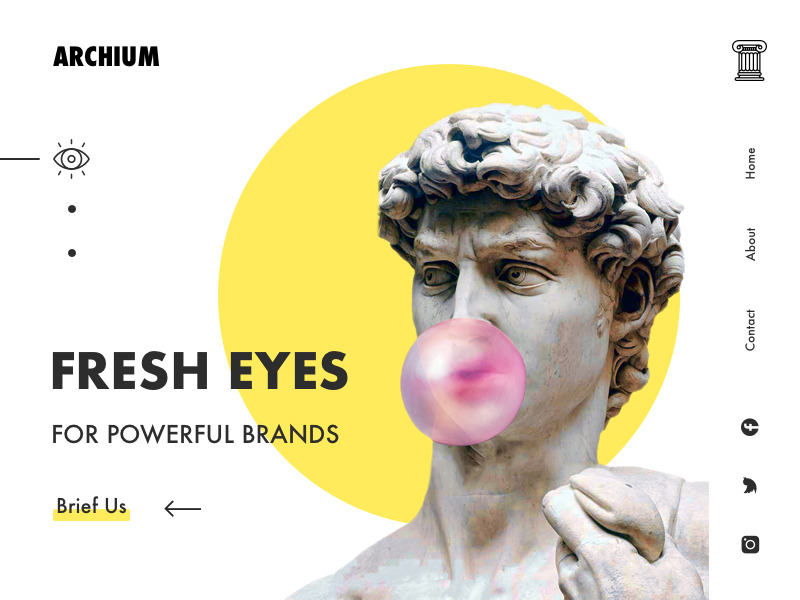
Forums
Forums can be launched as an attachment to the larger websites, or exist on their own. Online forums are used to kick-start discussions, search for like-minded people and business promotion. By the way, forums remain to be one of the most popular places on the Internet to ask and answer questions about different brands, services, and products.
Different companies use forums to ask customers about the pros and cons of their services, proposals for product improvement. Forums are like a support element for the main company’s product. Quora and Reddit are good examples of forum websites.
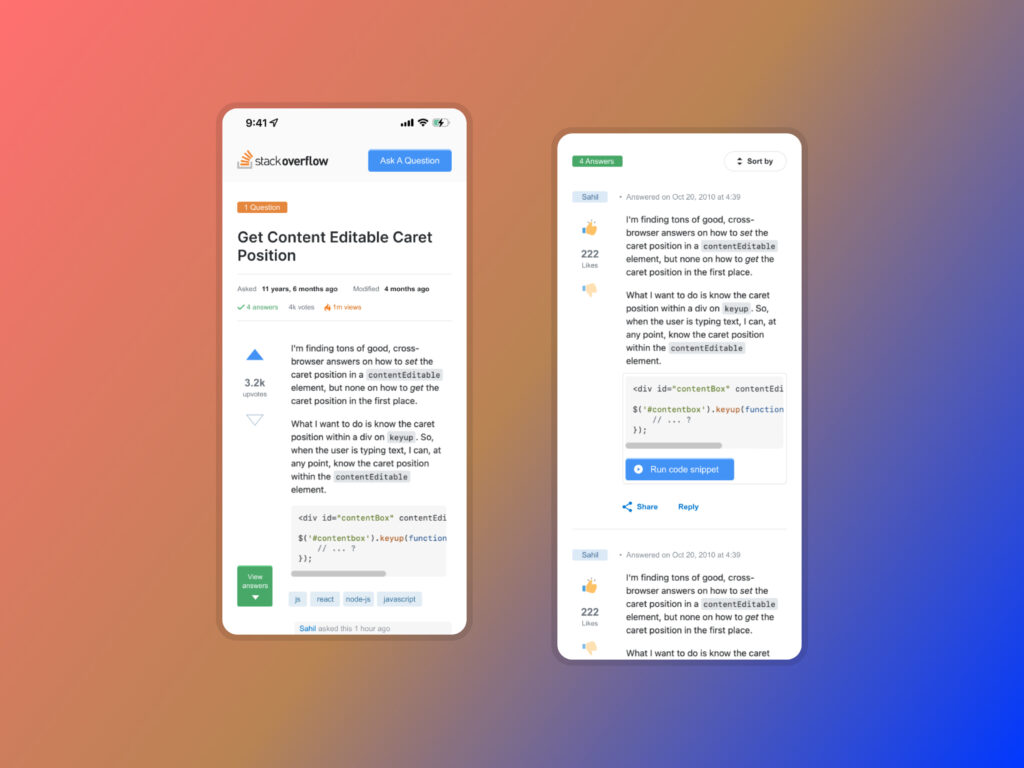
eCommerce Websites
It is a general name of online portals that facilitate online transactions of various goods and services. Ultimately, everything that needs a transaction is executed online on eCommerce websites.
Different eCommerce websites are labeled differently referring to the function they fulfill. They are B2B, B2C, C2C, C2B, B2A, C2A.
All these acronyms might make you feel dizzy, so it’s reasonable to define the difference between them.
(B2B) Business-to-Business: One business makes commercial transactions with another.
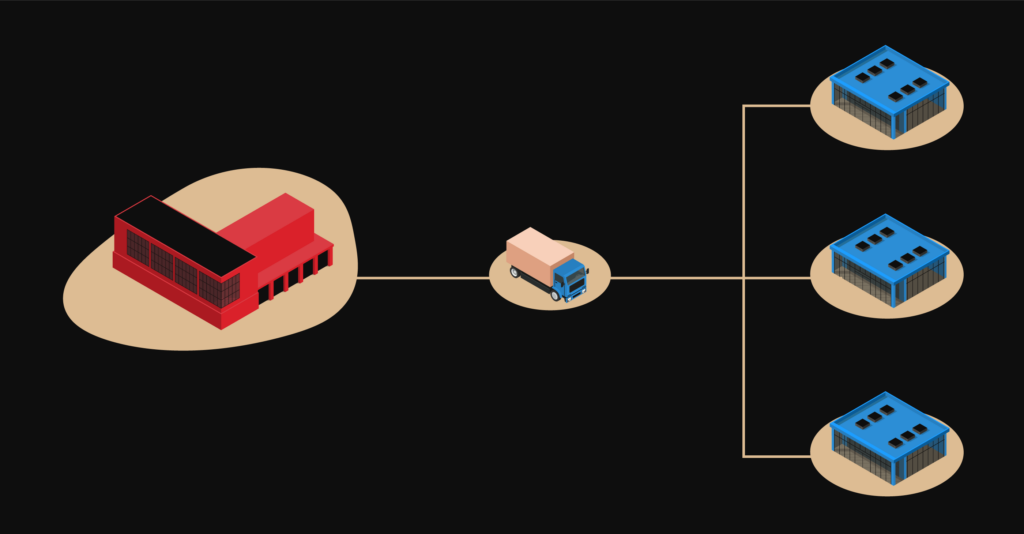
(B2C) Business-to-Consumer: Commercial transactions between businesses and consumers.
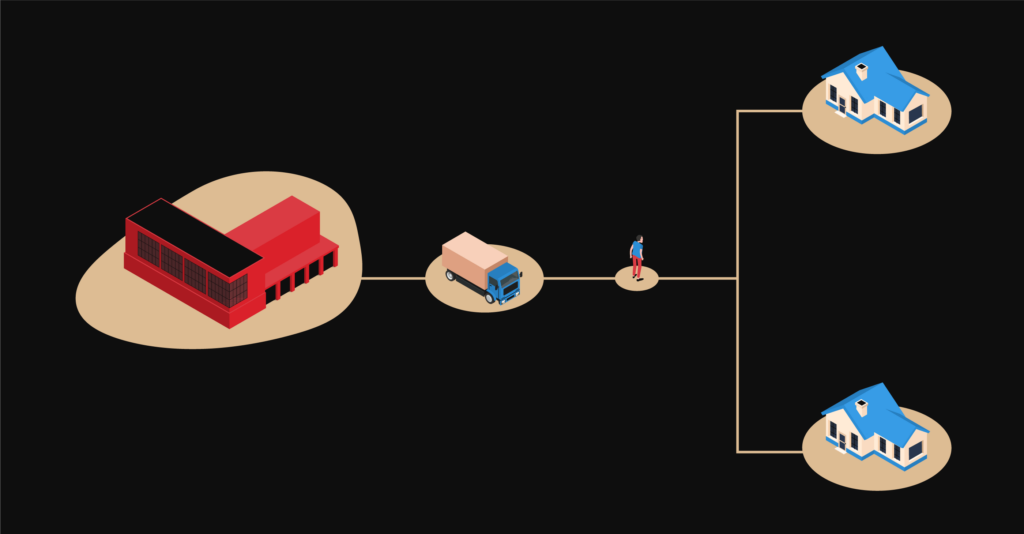
(C2C) Consumer-to-Consumer: Commercial transactions between consumers, mostly a third party.
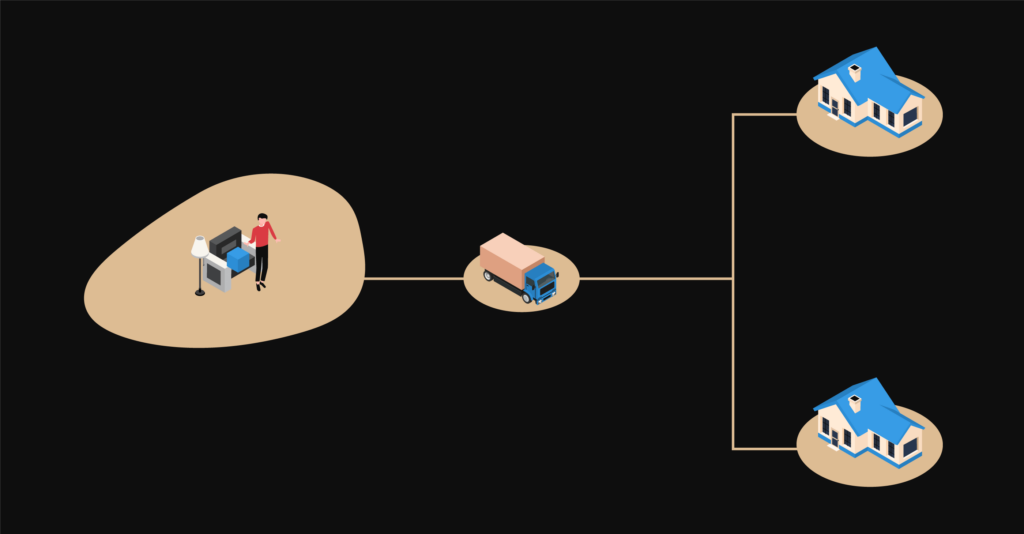
The greatest examples of C2C eCommerce are Amazon, eBay, Craigslist, and OLX. This article may be interesting for you: How to Make a Website Like Craigslist
(C2B) Consumer-to-Business: Commercial transactions between consumers and businesses.
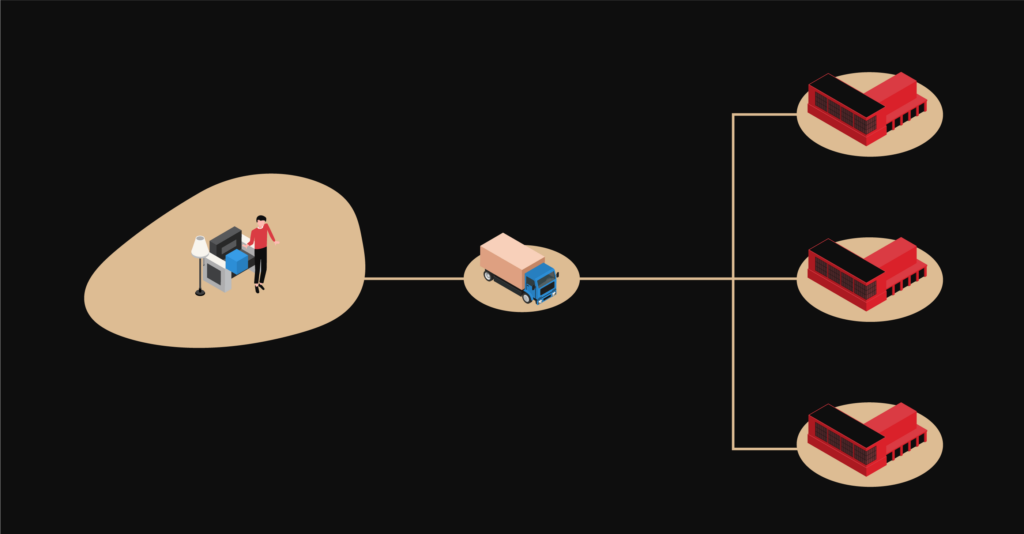
(B2A) Business-to-Administration: Commercial transactions between companies and public administrations.
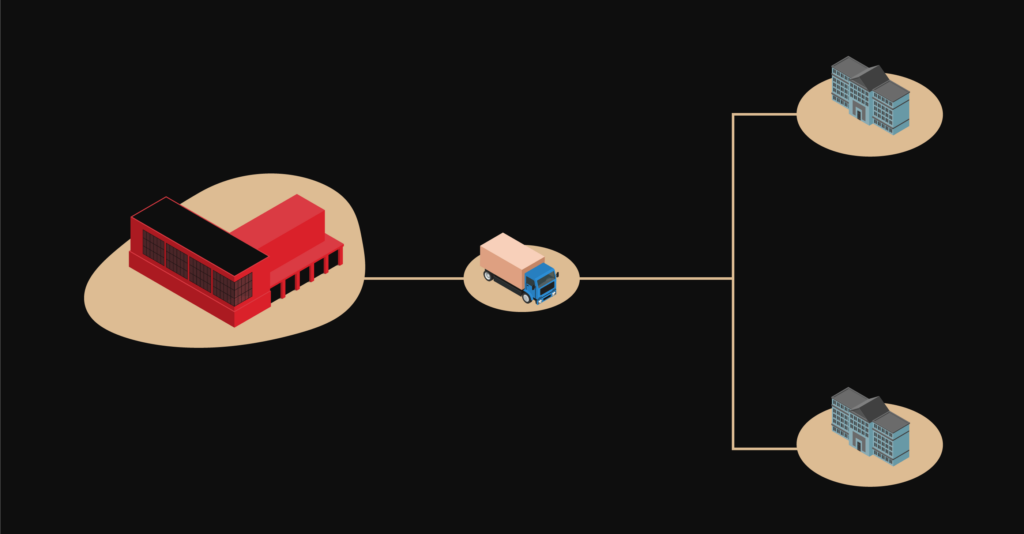
(C2A) Consumer-to-Administration: Commercial transactions between individuals and public administrations.
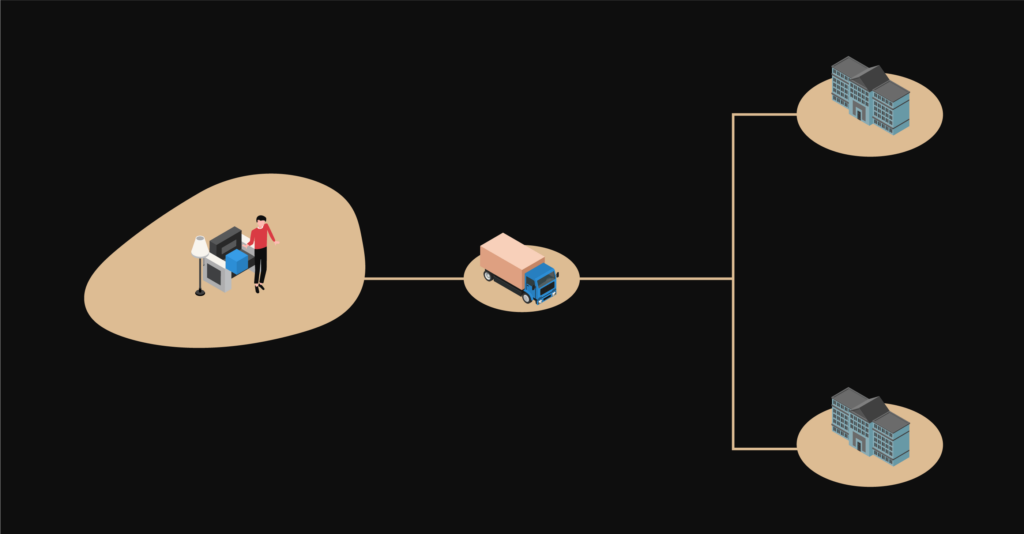
eCommerce website type is suitable for those who are planning to sell products through the Internet or already have an ongoing business. Such websites should have a sleek visual design and perfect usability that captivate and comfort people to make online purchases without any issues.
The websites mentioned above are built to perform a huge range of functions. It means that these websites should be clear, credible, and relevant to the people who use it. Functionality is the first category of the website. Let’s have a look at the second category — content websites.
Content Websites
When dividing websites by content, we usually mean the following ones:
Blog
Landing
Business (Small/Enterprise)
Crowdfunding
Educational
Social media
Non-profit
Personal
Portfolio
Portal
The list of content websites is impressive. Maybe, you’ll consider some of the examples suitable for your type of business. But firstly, check out the guidance.
What Is a Blog?
The blog is an online journal or informational website that displays concrete information concerning the individual topic of the subject. Blogs can be either standalone websites or based on corporate websites/stores, increasing the site traffic. Blogs are perfect platforms for content-marketing to promote certain products or services.
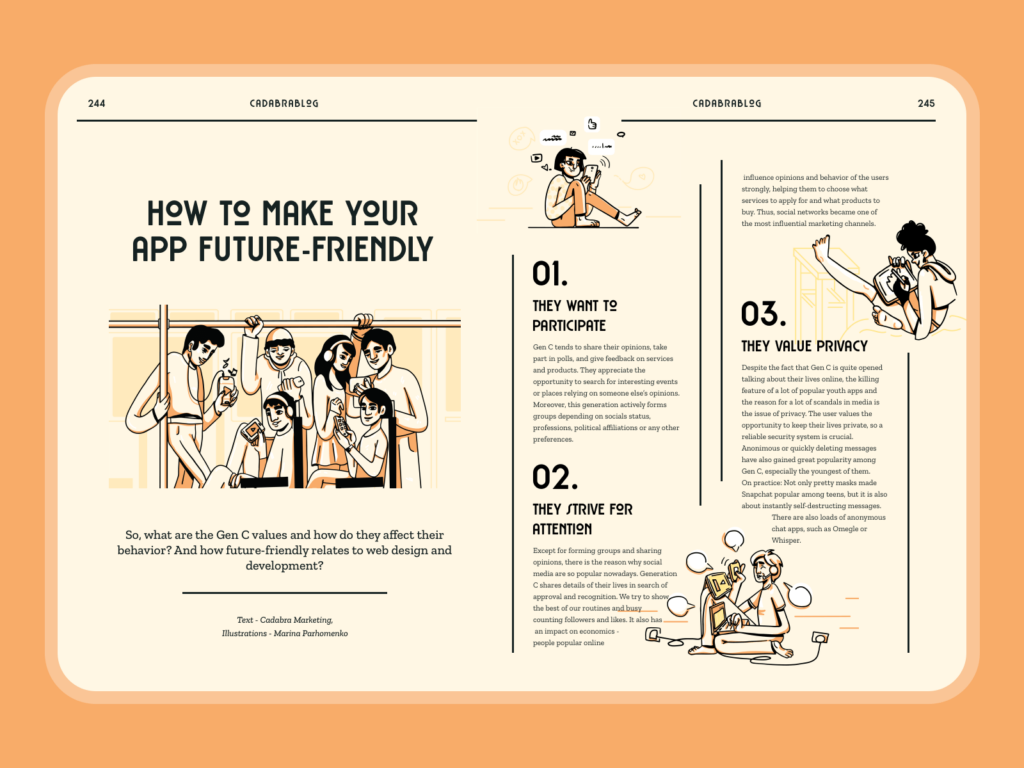
Landing Page
A landing page is a standalone web page, created specifically for marketing purposes and advertising campaigns. Landing pages are designed with a single goal that achieves with the help of user-focused messages along with the page known as Call to Action (CTA).
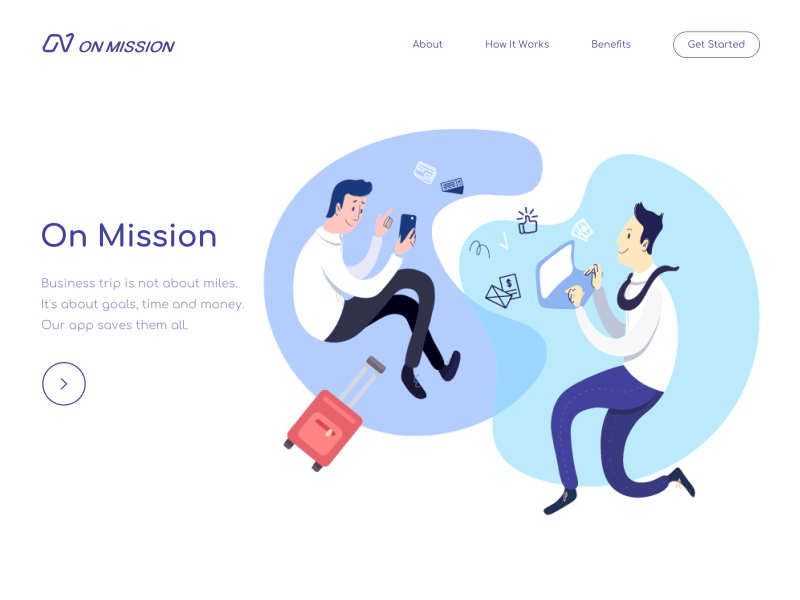
Business Website
A business website is any website that’s devoted to representing a specific business. It should be branded in the same way as the business (the same logo and positioning) and submit products/services the business offers. Customers use business websites to contact the company or its representatives.
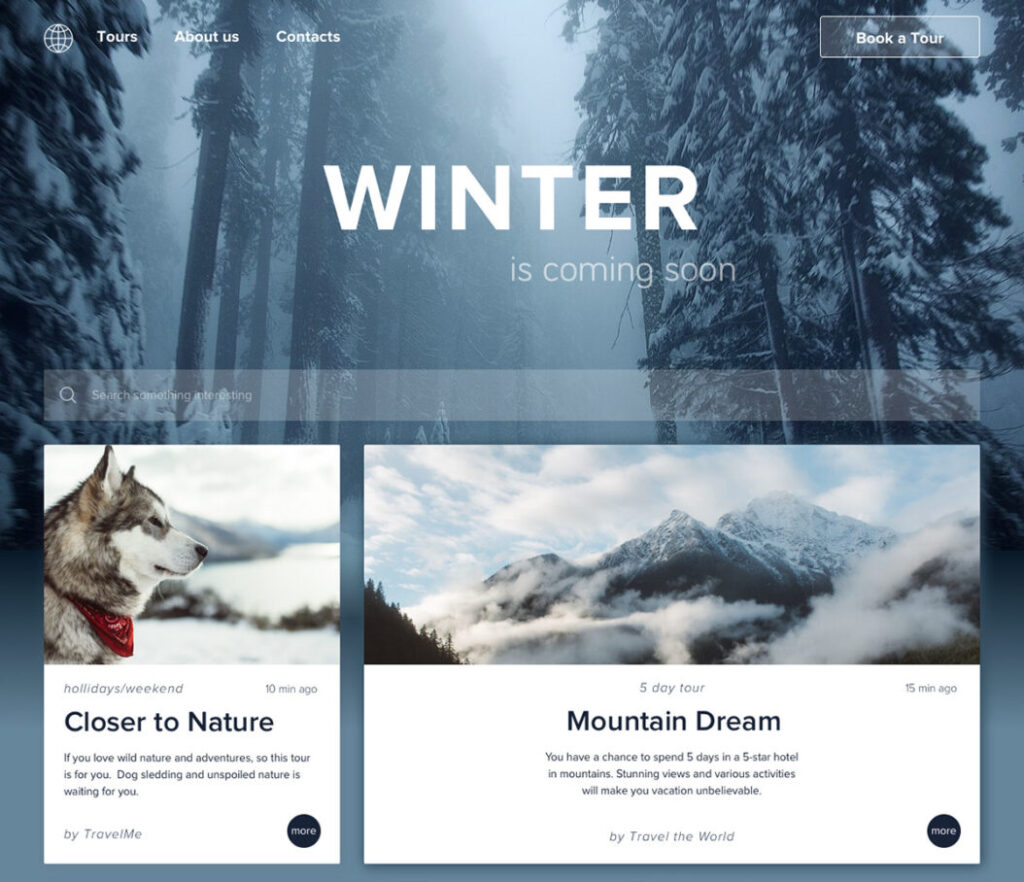
Crowdfunding Website
Crowdfunding website aims to find funding sources for specific projects or ventures by raising small amounts of money from lots of people. It provides the ability to add the introductory video of the project, setting a target and deadlines. Crowdfunding websites are a great go-to resource for new start-ups.
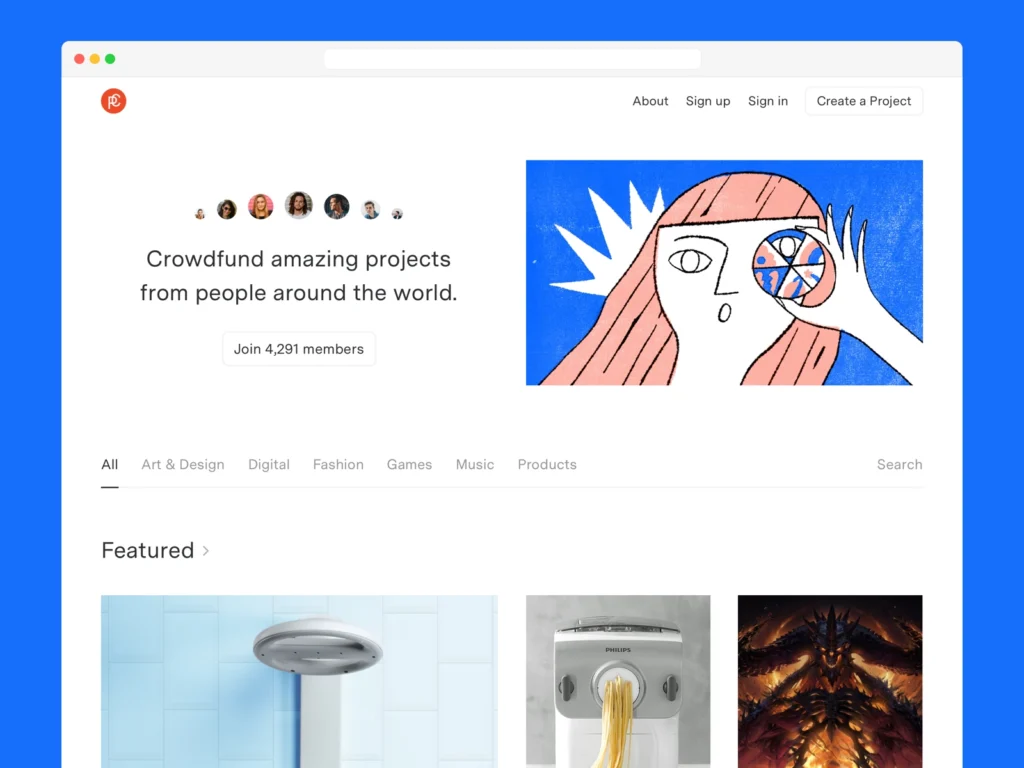
Educational Websites
Educational websites are the hosts of informative online platforms. These are the websites that present content with one specific purpose — to provide users with information for educational purposes.
The content of educational sites is the following:
short videos;
infographics;
lectures;
articles;
courses;
webinars.
Educational websites are online analogs of schools, where the learning process is monitored thoroughly. In addition, there is homework that must be completed on time and left on a personal account for review.
The model of payment may be different, either by subscription or a one-time payment, or even completely free. Сoursera or Udemy are great examples of worldwide educational websites, where various university courses are presented.
This article may be interesting for you: Best Educational Website Designs
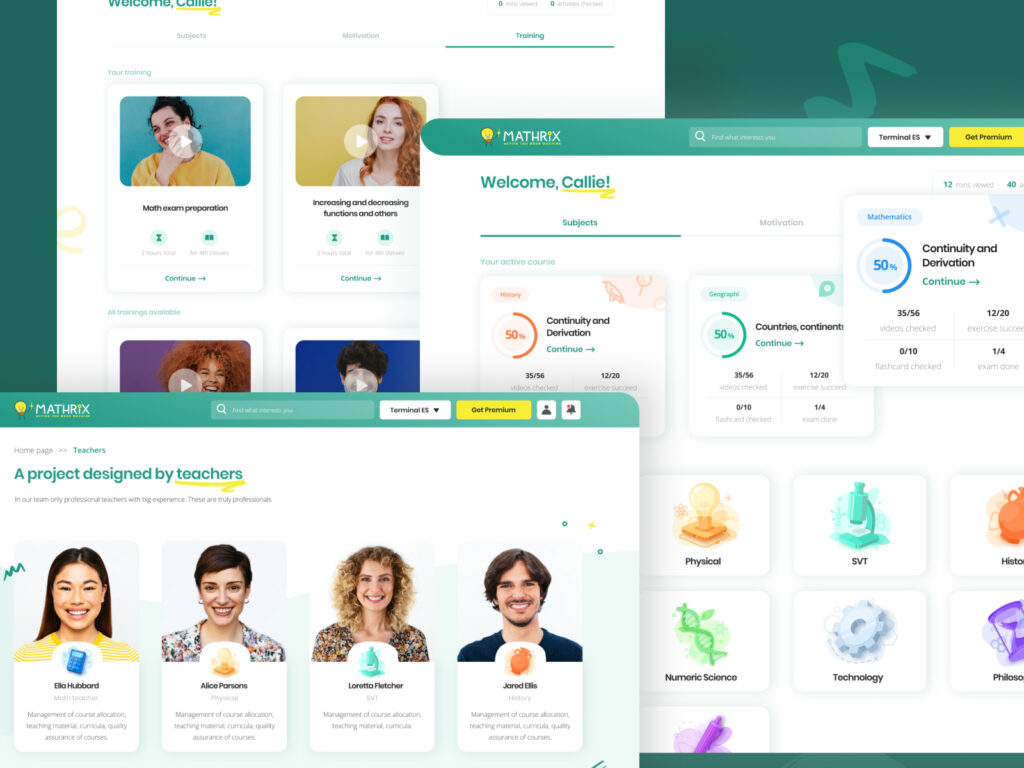
Nonprofit Websites
The aim of the nonprofit websites isn’t to sell products or services to their visitors, but to convince politely people to support presented projects. Nonprofit websites are one of the ways the charity organizations connect with their potential patrons.
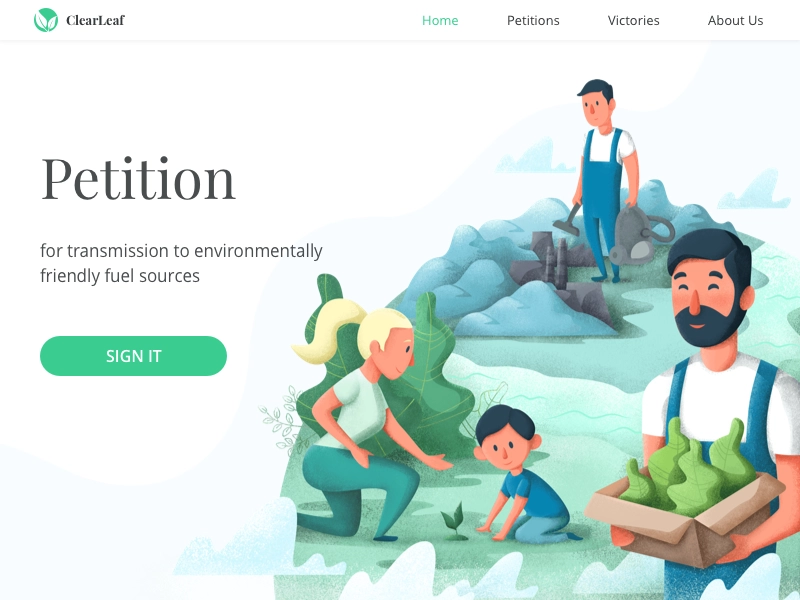
Personal Websites
Such websites are created by an individual to show the content of a personal nature. Such websites help your thoughts or personal articles gain popularity among Internet users, which can later become a personal brand. Primarily, a simple design of such websites will not let you stand out and be remembered, so use as much time as possible for website design.
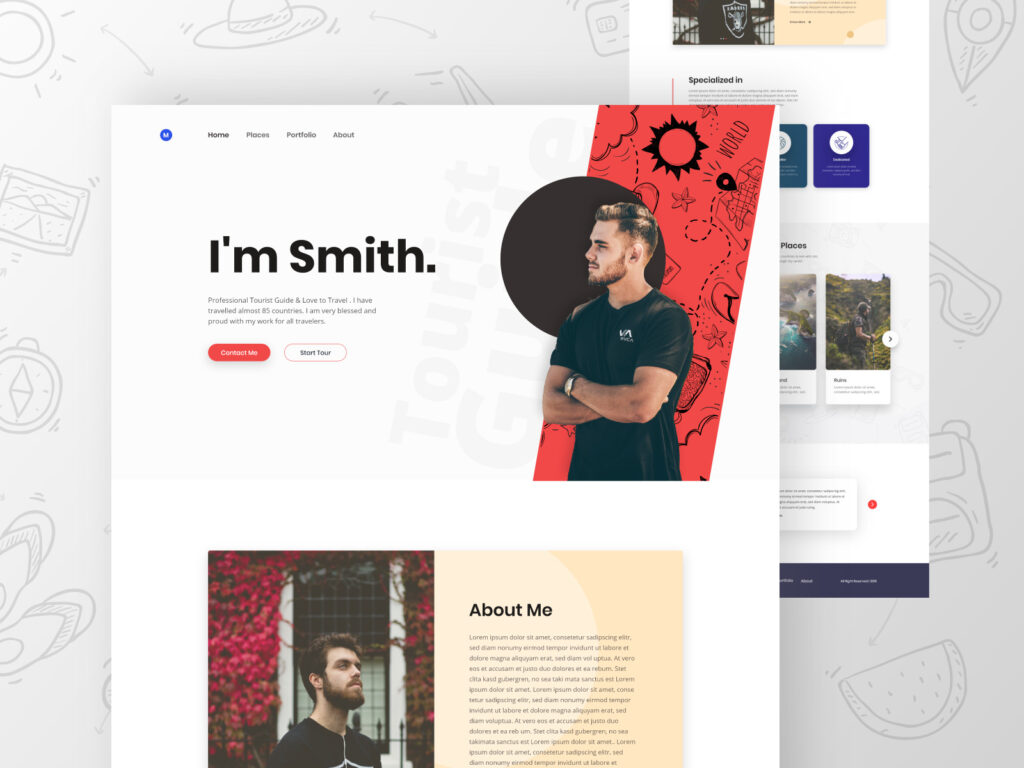
Portfolio
A portfolio site is a digital resume. It provides potential employers with explicit information in an effective way. The portfolio website (as well as a personal site) displays a person’s skills, the specifics of his/her work. The design of the site and its content should distinguish a specialist from others. Developers, designers, photographers, and many others use the portfolio to search for clients, present their projects, and sometimes as a resume.
Portal Website
Portal is a truly content website that brings information from diverse sources on the Internet. Portal websites are used mainly for communicating with customers to exchange all sorts of information. Once the users decide what information they want to get or exchange, a portal will be customized to fit their needs.
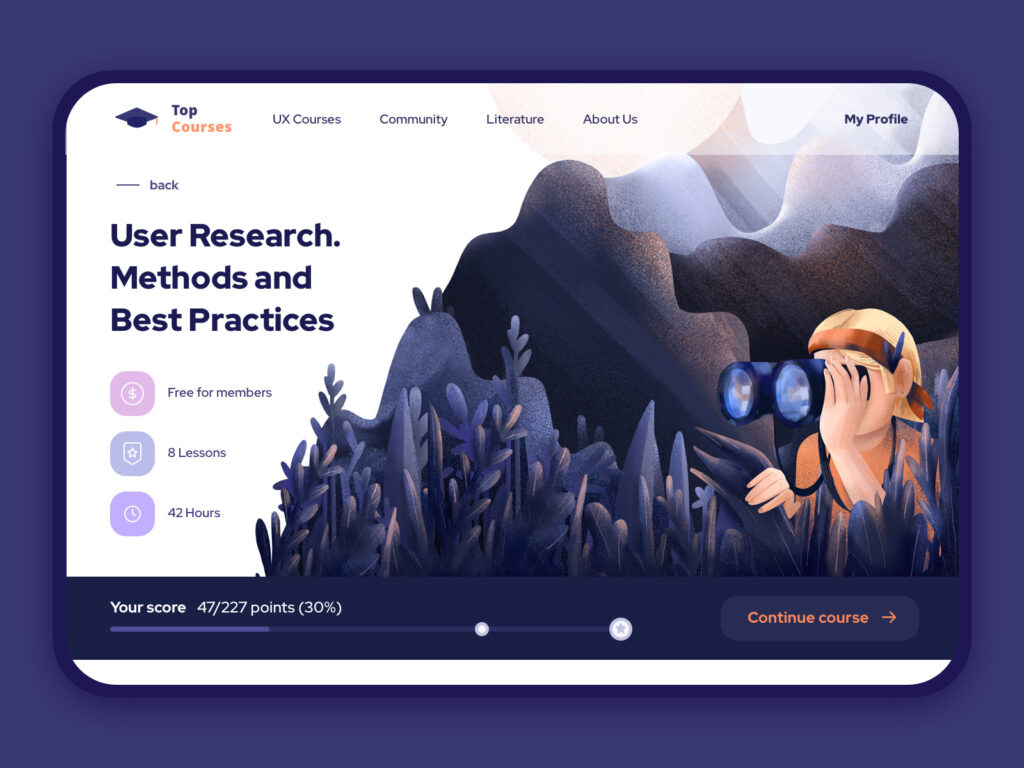
Educational Portal by Cadabra Studio
Now you know that content websites make a perfect marketing tool for various businesses and specialists that want to organize constant service presentation in line with the needs of the audience.
Types of Websites by Design
Both adaptive and responsive can prepare your website for mobile use. But, don’t mix them up. If the mobile version of the website is easy to view, probably, it has responsive or adaptive web design. Which one is best suited to your site needs, budgets, and goals? Will you need to switch over at some point? What are the advantages of each? Let’s try to clarify these questions together.
Responsive Website Design
A responsive website design provides a possibility to open the site on various devices with different types of screens — the content of the site automatically rearranges to fit the size of the screen or browser window, whether the user is on a 21-inch desktop computer, a 13-inch laptop, a 9.7-inch tablet, or a 5.5-inch mobile phone.
This enables us to maintain a consistent look and usability across multiple devices. What is more, it saves time and money by allowing us to update one version of the website for different devices.
Adaptive Website Design
Adaptive website design is the creation of multiple versions of a web page to better fit the user’s device. The layout depends on the screen size. For example, there are specific versions of web pages for mobile phones, tablets, and desktop computers that were made especially for these types of devices. These three designs are launched in a particular version according to the type of device. Sounds nice, isn’t it?
Though, there are several difficulties with adaptive website design. First of all, this is a difficult approach for implementation. Secondly, compared to responsive web design, the adaptive one is less flexible. We mean, adaptive design only works on the screens where its layouts are able to work.
Custom Web Design
Custom web design is created and tailored specifically for a brand, business, or product. It is exactly that type of web design you can rely on because it provides creative solutions to meet your brand needs during the design process. Why custom web design is beneficial?
The answer is simple. With pre-made templates, you don’t have many design options and the choices can be limited when you’re trying to achieve specific goals. On the contrary, specially selected fonts, colors, and layouts can help you to attract the target audience and achieve your business goals faster.
Although custom web design is costly, for businesses that depend on a solid web presence it’s a valuable investment. The custom design ensures the website to look professional and function well. The custom website provides an effective first impression on potential clients.
Template Website Design
A template website offers pre-packaged design solutions. The purpose is to build a simple and useful website from a generic template form that looks suitable. Templates are created to make your website building experience fast and easy. While choosing a website template, it looks like a completed website with specific content. However, you have the chance to insert your own content that will describe your business fully.
Compared to custom web design, this type is less expensive and time-consuming. However, it has limited customization and worse support. We advise you to keep in mind, that templates won’t make your site unique and outstanding. It just a ready-to-use tool, nothing more.
Types of the Website by Technology
Single-Page Application (SPA)
SPA is a web app that dynamically rewrites page code parts instead of loading a new page from the server on each user action. This approach makes the impression that the app interface doesn’t interrupt between actions, making the application behave more like a desktop application. It is quite a demanding type of website.
This article may be interesting for you: choosing the right technology stack
Progressive Web App (PWA)
PWA is a technology that adds functionality to a site. In the desktop browser, the progressive web app remains in the form of a regular site. However, when a visitor opens it in a browser on a mobile device, a PWA turns into a hybrid site and application. A PWA is built using common web technologies including HTML, CSS, and JavaScript. These features include using service workers, web app manifests, push notifications, offline support, etc.
You can find out more about PWA in our article: Progressive Web Apps vs Native Apps
How Can We Build Websites?
There are several ways of building websites. We can build a website by using the following ways:
a website builder;
a CMS;
based on the online marketplace builders;
make it from scratch.
Website Builders
Website builders are all-in-one software tools that let users build a site quickly without assistance. These are services like Wix, GoDaddy, Squarespace, Weebly, etc. The website builder typically includes a drag-and-drop editor that allows us to build pages and create beautiful layouts very quickly. However, we consider the usage of website builders risky and doubtful.
Content Management System (CMS)
CMS is a brief customization service like WordPress, Opencart, or Magento. It is an effective approach to create, edit and manage site content. A CMS can be custom-made for specific needs or it can be a CMS that already exists on the market as a ready to use solution. Customization is used for special needs in cases where the basic functionality isn’t matched with the set tasks of the business. Large companies prefer their own products or custom-developed CMS.
Online Marketplace Builders
Online marketplace builders are powerful tools that can help to make a store based on large marketplaces, such as Etsy, Shopify, eBay, and Amazon. The purpose is to help customers to sell only inside the marketplaces (as one of the sellers) at little cost. They are ideal for creating an online store and selling goods.
However, there are some disadvantages you have to concern about. Firstly, marketplaces can charge fees on every sale and the size of them is pretty varied. Secondly, some marketplaces may impose restrictive terms and conditions of how you can communicate to customers.
Website Building from Scratch
A website from scratch is a custom-designed and developed website. This simply means that the site is constructed according to the clients’ needs, and their specific business requirements. The website from scratch might seem time-consuming and costly. However, it depends on the needs and demands. Another advantage is that a website from scratch is easier to maintain and fix.
Summary
It takes 0.05 seconds for visitors/users to form an opinion about each of the website type and determine whether they’re going to stay or leave. So, it is important to consider whether your website is functional, has appropriate content or belongs to the category of technology. The main point of choosing the proper website type is that the layout has to entice visitors to make them stay on the site and learn more about your products or services.
We hope that our guide will help you to consider the proper website type and design. As a UI/UX design studio, we know how to properly match different types of designs with different kinds of websites. If you still have some hesitations, we will be glad to provide you with comprehensive guidance. Just get in touch with us.



